OECD guidelines on responsible business conduct
- 17/12/2024
- Posted by: Marijn
- Category: Info resources

In today’s interconnected global economy, multinational enterprises (MNEs) play a crucial role in driving economic growth, innovation, and development. However, with great influence comes significant responsibility. The OECD Guidelines for Multinational Enterprises on Responsible Business Conduct (RBC) are pivotal in setting standards for ethical and sustainable business practices. In this article, we explore the key elements of these guidelines and their relevance to business and investment in Vietnam. A good part of the information in this article is derived from the official website of the OECD. We highly recommend our readers to have a look here, for further information on this very relevant and current topic.
What are the OECD guidelines?
The OECD Guidelines are comprehensive recommendations jointly developed by governments of OECD countries to promote responsible business conduct. The guidelines are from 1976 and every now and then there is an update, most recently in 2023. These guidelines aim to enhance the positive contributions of businesses to sustainable development while minimizing adverse impacts on people, the environment, and society. The guidelines cover a wide range of topics, including:
- Human rights: Enterprises are expected to respect internationally recognized human rights and address any adverse impacts arising from their operations.
- Employment and industrial relations: Recommendations include promoting equality, safe working conditions, and the elimination of forced and child labor.
- Environment: Companies should adopt sustainable practices, reduce their ecological footprint, and contribute to global environmental goals.
- Combating bribery and corruption: Encouraging transparency and anti-corruption measures.
- Consumer interests: Promoting honest marketing and ensuring consumer safety.
- Disclosure: Companies should regularly disclose accurate, reliable information about their operations.
- Technology and innovation: Ethical use and development of technology, including data handling and artificial intelligence.
- Taxation: Ensuring fair and transparent tax practices.
The guidelines are voluntary but they carry significant weight because they are supported by so – called National Contact Points (NCPs) in adhering countries. These NCPs mediate disputes and promote awareness of the guidelines. Vietnam is not an OECD member. However, as we will explore further in this article, there are still good reasons for Vietnam and for businesses in Vietnam to adhere to the guidelines.

Why do the OECD guidelines matter?
- Global standards for responsibility: The OECD Guidelines serve as a benchmark for responsible business conduct, harmonizing practices across countries. This is particularly important for enterprises operating in multiple jurisdictions, where laws and cultural norms may vary widely.
- Risk mitigation: Adhering to the guidelines helps businesses mitigate risks such as reputational damage, legal disputes, and financial penalties. By embedding responsible practices, companies ensure long-term sustainability.
- Market Access and competitiveness: Consumers and investors increasingly prioritize ethical and sustainable businesses. Adherence to OECD standards signals credibility and fosters trust, opening doors to global markets.
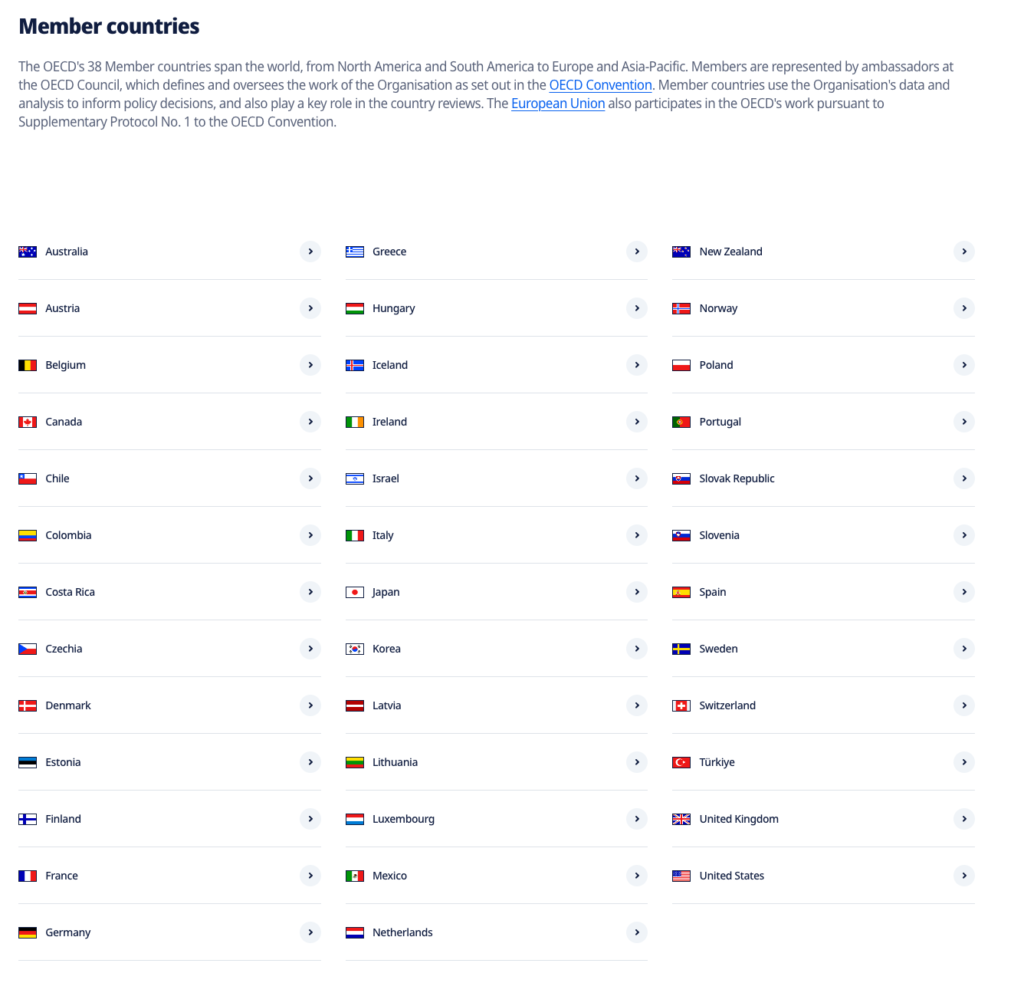
Relevance for Vietnam
Even though Vietnam is not a member of the OECD, it is emerging as a key player in the global supply chain. Meaning that it attracts significant foreign investment due to its strategic location, skilled workforce, and government initiatives promoting trade and investment. As Vietnam integrates deeper into the global economy, aligning with the OECD Guidelines can offer several benefits, such as:
- Enhancing investment appeal: Foreign investors often assess a country’s commitment to responsible business practices. By embracing OECD standards, Vietnam can position itself as a hub for sustainable and ethical investment, attracting multinational enterprises seeking compliance with global norms. Indeed, especially with recent EU legislation regarding chain responsibility: Vietnamese suppliers may indirectly be required to meet the RBC rules.
- Promoting sustainable development: Vietnam is grappling with challenges such as climate change, environmental degradation, and rapid urbanization. The OECD’s environmental recommendations, such as reducing greenhouse gas emissions and conserving biodiversity, align with Vietnam’s commitments under the Paris Agreement. Businesses can contribute to these goals by adopting green technologies and sustainable practices.
- Strengthening governance and transparency: The guidelines’ focus on anti-corruption, ethical lobbying, and transparent disclosure complements Vietnam’s ongoing efforts to enhance governance. Multinational corporations operating in Vietnam can lead by example, fostering a culture of integrity and accountability.
- Fostering inclusive growth: With a growing emphasis on labor rights and human capital development, the guidelines encourage enterprises to prioritize employee well-being. For instance, providing fair wages, ensuring workplace safety, and offering skills training not only enhance productivity but also improve the quality of life for workers.
Steps to align with OECD Guidelines
- Understand the guidelines: Businesses should familiarize themselves with the OECD recommendations and assess their current practices against these standards.
- Conduct risk-based due diligence: Identify potential risks to people, the environment, and society. Develop strategies to prevent or mitigate these risks.
- Engage stakeholders: Regularly consult with employees, local communities, and other stakeholders to address their concerns and incorporate feedback into decision-making.
- Enhance transparency: Disclose relevant information, such as sustainability initiatives, labor practices, and financial performance, to build trust among stakeholders.
- Leverage technology: Use advanced tools to monitor supply chains, track environmental impact, and ensure compliance with the guidelines.
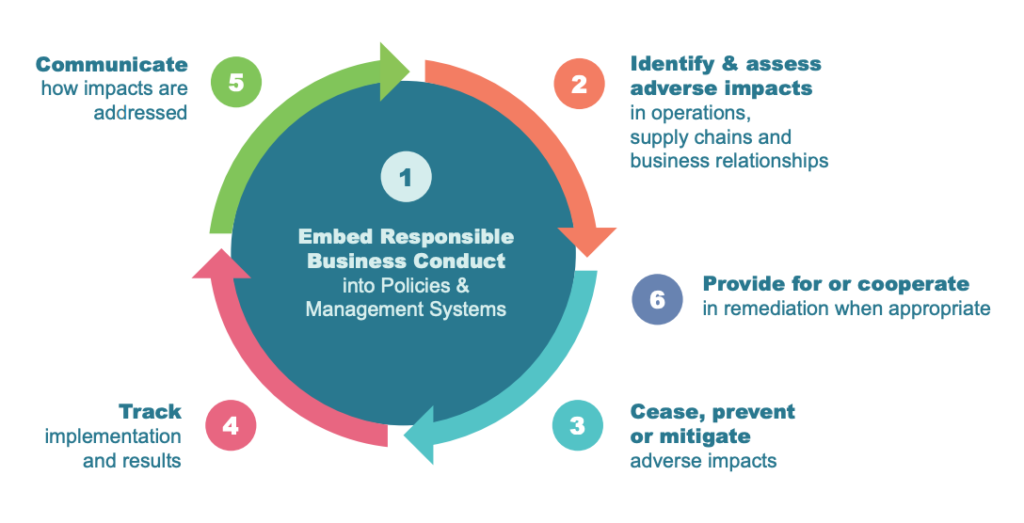
Challenges and opportunities
Challenges
- Complex supply chains: Ensuring compliance throughout a multi-tiered supply chain can be daunting. However, often it is just a matter of getting started, and then in practice it may turn out less daunting than it seemed.
- Resource Constraints: Small and medium-sized enterprises (SMEs) may lack the resources to fully implement the guidelines. Strictly speaking, there are not directly bound by these guidelines for MNEs. However, indirectly they may be required to comply. However, the OECD expects that MNEs will in fact help SMEs with compliance. Furthermore, SMEs can often work together with other SMEs in the same field, or with branche organizations, sharing the load.
- Cultural and regulatory differences: Balancing international standards with local practices requires careful navigation. The OECD guidelines contain clear language, and they aim to create a level playing field. However, implementation may differ from country to country and from sector to sector.
Opportunities
- Reputational benefits: Companies that demonstrate commitment to RBC are viewed as ethical and socially responsible, which boosts their brand image both locally and internationally. Furthermore, transparency and ethical conduct foster trust among consumers, local communities, governments, and NGOs, reducing resistance to business operations. And ethical practices attract impact investors and ESG-focused (Environmental, Social, and Governance) funds.
- Operational advantages: Addressing RBC concerns reduces risks such as protests, regulatory penalties, and supply chain disruptions. Moreover, positive relationships with local communities and authorities facilitate smoother operations and compliance with regulations. And RBC also improves the ability to recruit and retain talent, especially among purpose-driven professionals.
- Financial gains: RBC practices, such as energy efficiency or waste reduction, often lead to lower operational costs. Furthermore, many investors and financial institutions prioritize companies with strong ESG performance, opening up financing opportunities at favorable rates. And aligning with RBC can help companies identify new business opportunities, such as developing sustainable products or services tailored to local needs.
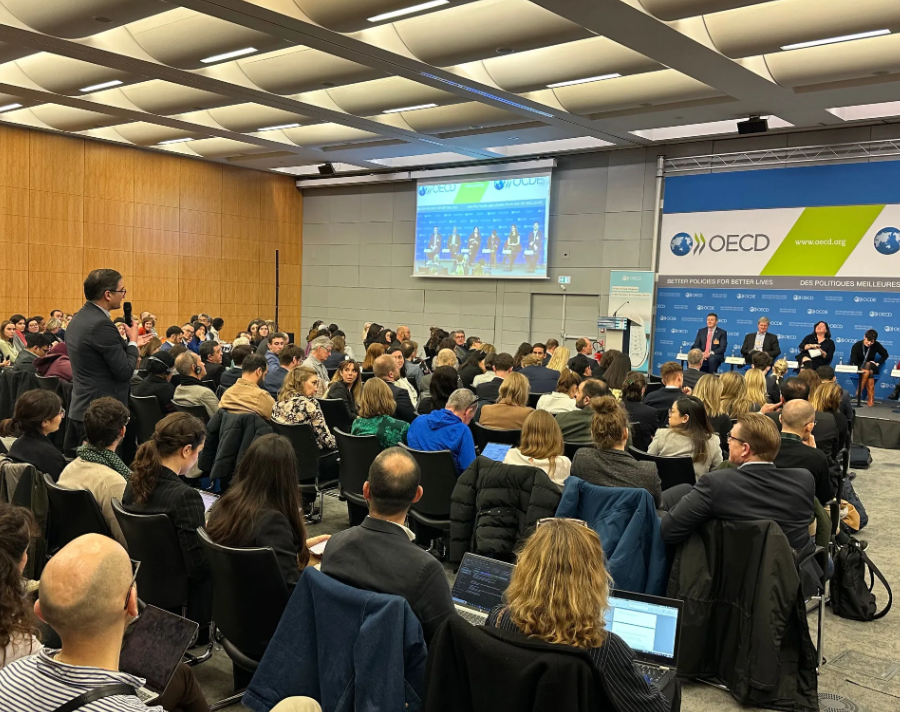
Conclusion
The OECD Guidelines for Multinational Enterprises provide a robust framework for responsible and sustainable business practices. For Vietnam, embracing these guidelines is not just a matter of compliance but a strategic move to attract investment, foster sustainable growth, and enhance its global reputation. By aligning with these standards, businesses in Vietnam can drive positive change while securing their long-term success in an increasingly conscientious global market.
VNHL is here to support you
VNHL fully appreciates and supports the OECD guidelines on responsible business conduct, as well as the United Nations sustainable development goals. We closely follow any new developments in this regard, especially now that there is more and more legislation on this topic in the European Union. If you have any questions or requests for support: you can reach out to us via the chat button on the right of this page, or via our contact us page for further information and questions. Our three main services are: (i) consulting, (ii) networking, and (iii) supporting. We look forward to hearing from you and to supporting you.

*Dear reader, even though our VNHL Consulting team always tries its very best to provide its Clients with correct and complete info: we are not a Vietnamese law firm. The information in this post is therefore not meant to, and should also not be construed to, constitute legal advice. For specialized advice in the fields of law, accounting, tax, etcetera: we always recommend our Clients to speak with qualified specialists in those fields. We have several such specialists in our nationwide network, and we are always happy to introduce our Clients to them, when appreciated.
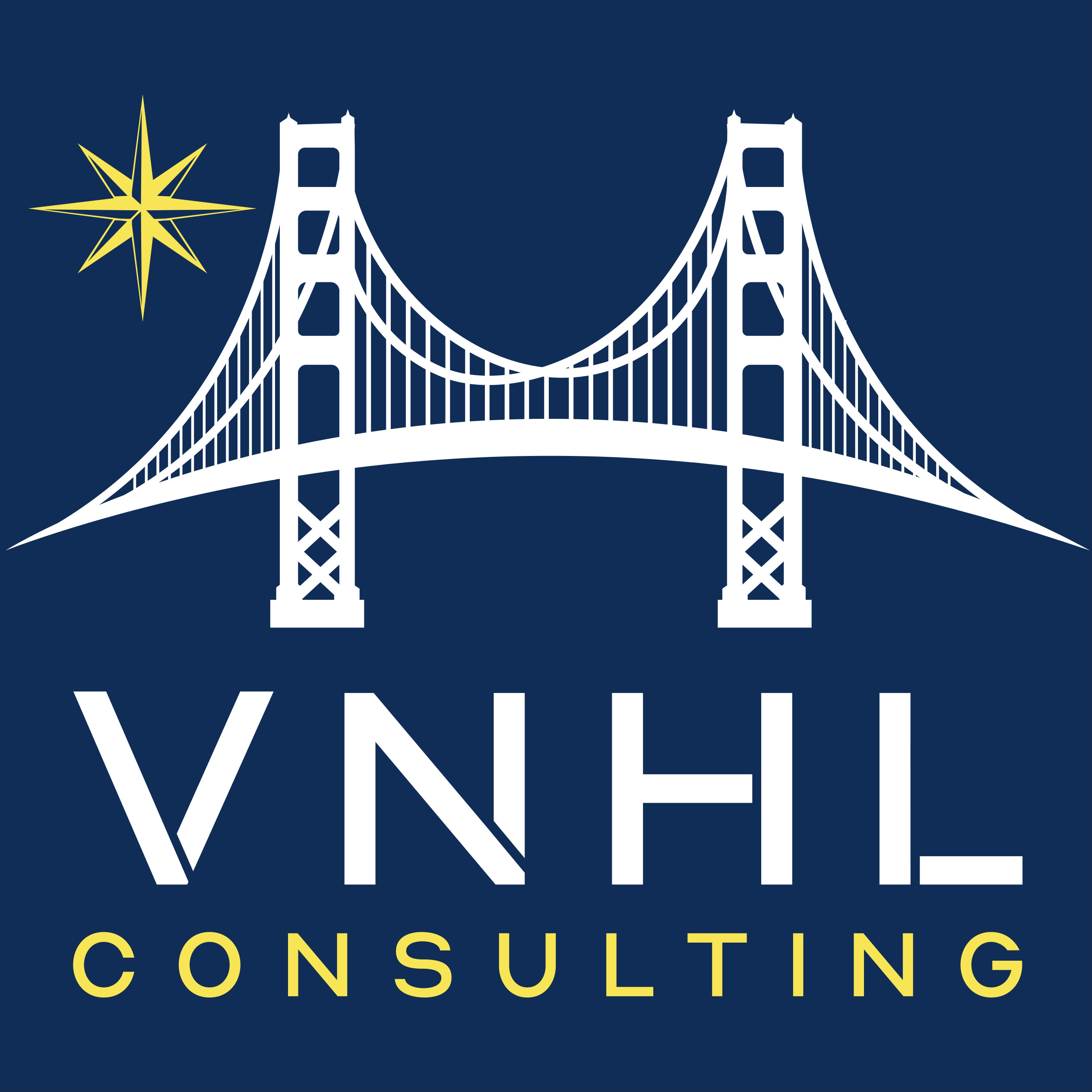
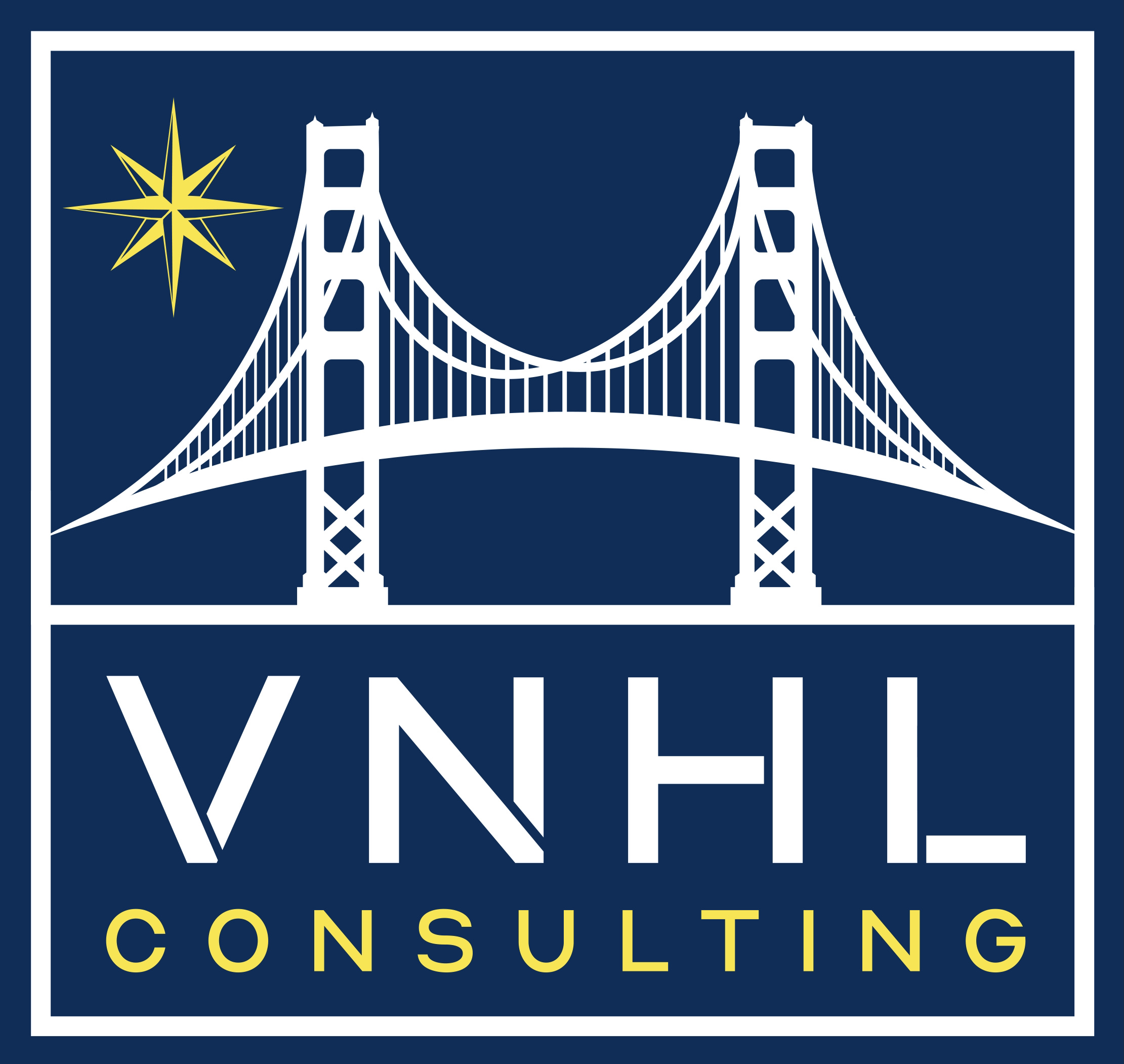
[…] in this field. However, the foundations for RBC were already laid some 49 years ago. In 1976, the OECD Guidelines for Multinational Enterprises (MNE Guidelines) introduced responsible business conduct. Its main aim was to position people, […]
[…] post about the United Nations sustainable development goals (quoted above), and also one about the OECD guidelines on responsible business conduct. We believe that sustainability is a relevant topic, especially now that there is more and more […]